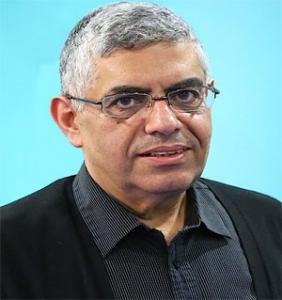In parallel with the Israeli government’s approval of the ceasefire agreement in the Gaza Strip and the prisoner exchange deal, and the expectations that this agreement brought about regarding the possibility of ending the war that broke out on October 7 (2023), it was noted that there was what was described as “gnashing of teeth” from this government, and not only from its most extreme Messianic wing, and there are also confirmations that it came in response to pressure exerted by the administration of the elected US President, Donald Trump, not to mention that it is almost the same agreement that was reached in May 2024, and was presented by the outgoing US President, Joe Biden, but Prime Minister Netanyahu obstructed it by insisting on rejecting its provisions, then he returned and approved it under the pressure of the new administration in Washington.
When following the Israeli analyses and comments that have been written, it can be said that the agreement has created a mixed mix of feelings among Israelis, not to mention raising questions that contain a degree of evaluation that contains implications. The first of these questions is whether it was possible to implement the completed deal months ago? Although most of those who raised this question, which is of the type “what if?”, evaded trying to answer it, under the pretext of the need to leave it to the judgment of history, or the judgment of an independent investigation committee if it was formed at all, a few of them tried to provide an answer, from which it is possible to infer the following:
First, the meaning of the agreement is clear: Israel did not eliminate Hamas militarily, even though it dealt it a strong blow, nor did it eliminate it politically. The agreement does not contain anything that guarantees that the movement will not regain its strength, and the Israeli government did not put forward a political plan for what is described as the “day after” the war, and remained determined to use force and more force for political reasons and for Netanyahu’s personal survival.
Secondly, in addition to all of this, the Israeli army was exhausted with missions that had no impact on the terms of ending the war, and also weakened Israel's international standing.
The general climate in Israel indicates that Netanyahu’s most important political interest is to remain in power, which determines the direction of events more than any other public interest. Ending the war in Gaza would jeopardize his continued rule, for several reasons, most notably: As long as the war continues, it will be difficult to demand new elections or to establish an official commission of inquiry that could hold him accountable for the failure of “October 7.” His partners in the government coalition from the extreme right wing are committed to continuing the war, and are threatening to topple the government if the prisoner exchange deal commits to stopping the war. For this reason, Netanyahu is hinting that he will do everything in his power to prevent this war from ending. These partners see the war as an opportunity to return to settlement in Gaza, by expanding the scope of the Israeli army’s control over areas of the Gaza Strip, and then turning them into settlements, given that the “Al-Aqsa Flood” attack created strong security justifications for changing the border with Gaza.
With Trump back in the White House, Netanyahu’s partners are toying with the dream of restoring settlements in Gaza. As some recall, Trump hinted in his 2020 “deal of the century” that he was ready to think differently about everything related to the Middle East, when he recognized the annexation of the Syrian Golan Heights to Israel and discussed the possibility of allowing Israel to impose sovereignty over Jewish settlements in the West Bank.
Outgoing US President Joe Biden, on the cusp of ending his term, silently approved Israeli military control of areas in southern Syria in order to “establish defensible borders.” Now Trump has an opportunity to do just that in northern Gaza.







Share your opinion
In the meaning of the ceasefire agreement